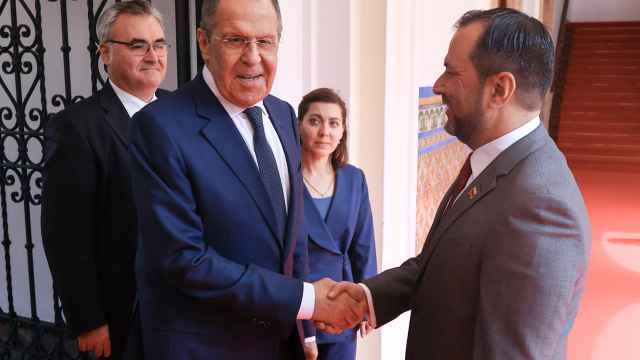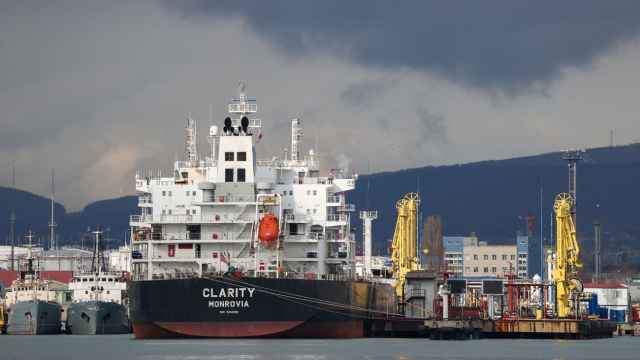The second round of U.S. sanctions over Russia’s alleged use of chemical weapons in the U.K., which came into force on Monday, took a year to arrive and had a decisively limited business impact.
The “softness” of the new U.S. measures shows that the sanctions environment has found its equilibrium.
Moreover, it indicates that Moscow may have run out of moves to advance its own agenda that may trigger new radical sanctions with a wide-reaching economic impact.
Sergei and Yulia Skripal were poisoned in March 2018, reportedly by a nerve agent attributed in the West to Russia. This prompted U.S. sanctions under the Chemical and Biological Weapons Act (CBW), which requires the US to react to situations where such weapons are believed to have been deployed.
The first round of CBW sanctions came in August of last year and focused on curbing foreign aid, government loans and defense/security-related exports to Russia.
New U.S. sanctions came into effect yesterday, on Aug. 26.
The sanctions block U.S. banks from lending to the Russian government (though they still may purchase Russian government debt on the secondary market), instruct U.S. authorities to oppose lending to Russia by international bodies (such as World Bank), and impose further curbs on defense/security-related exports to the country.
Other possible options the U.S. had was a downgrade/suspension of diplomatic relations; a ban on Russian state-owned airlines’ (such as Aeroflot) flights to the U.S.; and possible restrictions on Russian imports to the U.S. — which would include oil.
Given these alternatives, and the fact that the Russian government has not been actively borrowing internationally for years, the U.S. chose for a mildest possible scenario in the second round of CBW sanctions.
It's business impact definitely does not compare to the shock that the blacklisting of Rusal delivered to the markets in April 2018, not to mention the initial 2014 sanctions.
What triggers sanctions?
The relative mildness of the second round of CBW sanctions is not a fluke, or, indeed, a sign of pro-Russian leanings in the White House.
Sanctions are a response to Russia’s (perceived) actions, and as such, are expected to be proportionate to what caused them.
The main causes of the sanctions were Russia’s annexation of Crimea, a move that upended a fundamental post-WWII rule of the game in Europe; the alleged armed support of a massive uprising in eastern Ukraine; direct Russian military involvement in the Syrian civil war; and the influence campaign at the 2016 U.S. elections.
Compared to that, incidents like the Skripal affair or the capture of three Ukrainian vessels by Russia in the Kerch Strait in November 2018, while no less reprehensible from the Western point of view, are clearly an order of magnitude lower — and so is the response
The key question is, then, whether there is anything left that Russia can do, while advancing its own agenda, that would have the side effect of bringing about new sanctions comparable to 2014?
When the Kremlin is considering moves that can instigate sanctions, it takes into consideration two factors: Foreign policy and domestic impact.
Internationally, Putin’s government sees itself as playing a defensive game against what it essentially thinks of as Western imperialism encroaching on its sovereignty.
But the domestic relevance of these moves for Russia also cannot be understated. Foreign policy achievements translate into shoring up domestic support of the Russian government, and the Kremlin is keenly aware of that.
A lull in the global standoff
Internationally, no major points of contention with sanctions potential appear to be on the agenda.
The most recent U.S.-Russian standoff focused on nuclear arms, culminating so far in the mutual withdrawal from the 1987 Intermediate-Range Nuclear Forces Treaty.
However, in this case the U.S. — like Russia — responded by developing its own missiles previously banned by the treaty.
While strategically alarming, this developing arms race, where both sides build the types of weapons they have foregone for more than three decades, would not have an immediate impact on business.
Moreover, U.S. sanctions over military capabilities would be an impediment to any future talks about replacement treaties — an idea that both sides have thankfully not abandoned. It would be hard to negotiate about missiles that one party has, through sanctions, already demanded to be dismantled.
Russia’s involvement in other countries has also triggered sanctions in the past — in addition to Ukraine, there is Syria, where Russian troops are deployed. At the moment, Moscow has limited involvement in Venezuela and Libya — which formally creates an area of potential sanctions exposure.
However, the Kremlin is not expected to step up its involvement in either country to Syrian levels, if only because of the limits to its already-stretched capabilities to project military power abroad. This means that broad U.S. sanctions over Russian activity in either country are unlikely.
Perhaps most importantly in Russia’s cost-benefit analysis, the Kremlin does not seem to have any radical foreign policy moves left that could bring significant domestic payoff.
The annexation of Crimea did that, utilizing a surge of patriotism to reverse the downward trend in approval ratings ongoing since 2012 thanks to an already slowing economy.
However, the Crimea effect has worn out, and recreating it appears unfeasible. Even the annexation of Belarus, discussed as a possible means of keeping Putin in power after his last term in office runs out in 2024, is not shown by pollsters to have much potential to impress the voters — likely not enough to offset the ruinous sanctions-related costs that a new annexation would trigger.
Overall, the focus of the Russian public has shifted to domestic matters.
Wage growth has been stalled for the sixth year in a row, taxes are constantly increasing along with the credit burden.
Coupled with the wildly unpopular pension reform, this has made such a dent in the approval ratings that Putin’s ruling party, United Russia, is forced to disguise its candidates at elections as independents.
None of these problems would be solved by the annexation of Belarus, deployment of troops to Libya, or new ballistic missiles. Awareness of this is settling in the Kremlin — witness Putin’s expression of concern on Monday over a “slowdown in income growth rates”, a grudging, but unmistakable recognition of things going wrong with the economy.
Chances of new Russian foreign policy blunders remain, thanks to the multitude of actors involved. But overall, it looks like the time for improving domestic ratings through sanctions-generating international shenanigans is past — and the Kremlin is growing aware of it.
A Message from The Moscow Times:
Dear readers,
We are facing unprecedented challenges. Russia's Prosecutor General's Office has designated The Moscow Times as an "undesirable" organization, criminalizing our work and putting our staff at risk of prosecution. This follows our earlier unjust labeling as a "foreign agent."
These actions are direct attempts to silence independent journalism in Russia. The authorities claim our work "discredits the decisions of the Russian leadership." We see things differently: we strive to provide accurate, unbiased reporting on Russia.
We, the journalists of The Moscow Times, refuse to be silenced. But to continue our work, we need your help.
Your support, no matter how small, makes a world of difference. If you can, please support us monthly starting from just $2. It's quick to set up, and every contribution makes a significant impact.
By supporting The Moscow Times, you're defending open, independent journalism in the face of repression. Thank you for standing with us.
Remind me later.








